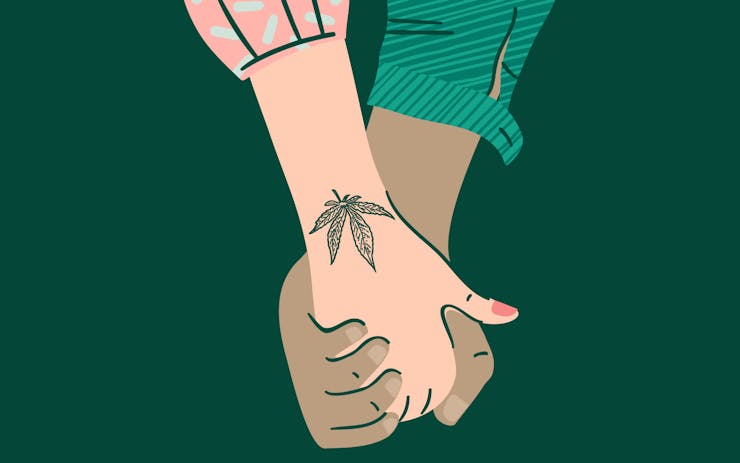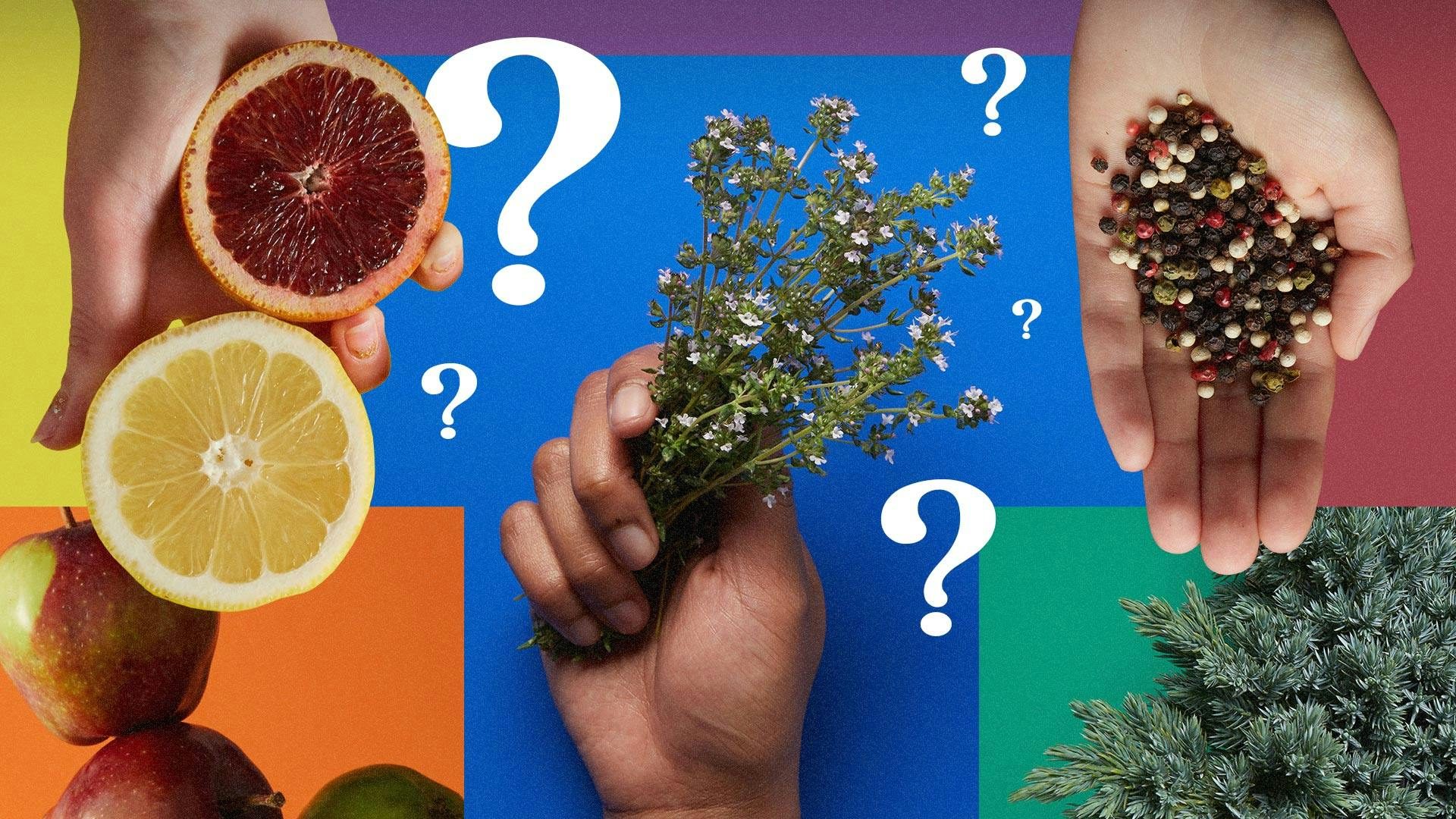Let’s face it, dating is complicated. When you throw in clashing views on the topic of cannabis, it can feel especially daunting. For better or for worse, legalization changed the game and cannabis is now part of the dating conversation. Whether it’s a big issue, or just a small conversation, disagreements about the green stuff don’t have to be automatic dealbreakers. Leafly sat down with sex coach and CannaSexual founder Ashley Manta to get the dish on how keep your relationship out of the weeds.
It’s not always about the stigma
There are valid reasons to avoid cannabis in your life–and they aren’t always based in bias or personal stigma. “One common dealbreaker is if one of the partners has compelling legal or career reasons for not wanting cannabis around them or in their space,” says Manta.
Cannabis use can be weaponized in custody cases, workplaces can have zero tolerance policies, or the cannabis-avoiding partner could have any number of other reasons that need to be respected. If keeping cannabis in your life is important to you, Manta suggests you don’t date people who could face dire consequences over your consumption.
Communication and compromise
As cliché as it sounds, communication is key. Navigating cannabis consumption is no different than figuring out any other aspect of a relationship. “Create opportunity for dialogue, rather than drawing a hard line,” says Manta.
Perhaps the non-consuming partner could examine what’s behind their discomfort—is it religious, political, born of a bad experience, based on misinformation and stigma, or something else?
For the consumer in the relationship, she says, “Know yourself, your habits, what you get from cannabis, how often you consume, and how important it is to you. Understand your boundaries and needs, and communicate them as clearly and kindly as possible.”
Compromise gives couples some wiggle room instead of jumping right to a ‘cannabis or me’ ultimatum. Manta suggests a variety of strategies couples can explore, such as only consuming on days apart or opting for non-intoxicating CBD strains. Manta, for instance, doesn’t like to be around cigarette smoke, but can tolerate combusted cannabis. “I’ve asked my cigarette-smoking partner to only smoke spliffs if we’re spending time together. If he doesn’t want to get high, I’ll roll him a spliff with hemp flower instead of cannabis flower so there’s no head high. It’s all about compromise and asking for what you need,” shares Manta.
And if smoke in general is an issue, the consuming partner may want to consider a different method of delivery, such as cannabis-infused edibles, oils or beverages.
When to abstain
A common worry among non-consumers is that a partner needs to be high to enjoy sex. “I find it’s largely an unfounded fear though,” says Manta. “Cannabis isn’t magic. It won’t make you enjoy something that you otherwise wouldn’t.”
Shop highly rated dispensaries near you
Showing you dispensaries nearHowever, she notes that if one person feels their partner’s state-of-mind is detracting from their sexual experience, then it is perfectly okay to ask for sober sex. “You can always make requests, and the person receiving the request gets to decide if they want to engage based on those requested parameters.”
You don’t have to evangelize, or teach
Couples should approach their cannabis conversations with open dialogue instead of a teaching mentality—the goal is to communicate and compromise, not to sway one partner into consuming or abstaining. However, there may come a time when the abstaining partner naturally becomes canna-curious. While it might be tempting to play teacher, not every cannabis consumer is prepared with the knowledge or skills to guide a first-time experience.
“Just because someone smokes occasionally doesn’t make them well versed on best practices,” Manta says, adding that the consuming partner shouldn’t feel obligated to teach the canna-curious partner. “If they have a high tolerance and don’t know enough to advise their newbie partner to go slow and try balanced THC/CBD products, or super low-dose edibles, they could end up giving their partner a lousy first experience and scare them off cannabis entirely.”
Manta suggests using a trained budtender, cannabis sommelier, or cannabis-friendly relationship coach like herself instead.
Can it work?
With open dialogue and a little compromise, people with different views on cannabis can absolutely have long and fulfilling relationships. “Yes, it is definitely possible. The key for working through different perspectives is mutual respect and willingness to compromise without transgressing your own boundaries,” says Manta. “If you’re going to argue, be empathetic. Think of it as you and your partner versus the problem, instead of you versus your partner. Relationships are a team sport!”






